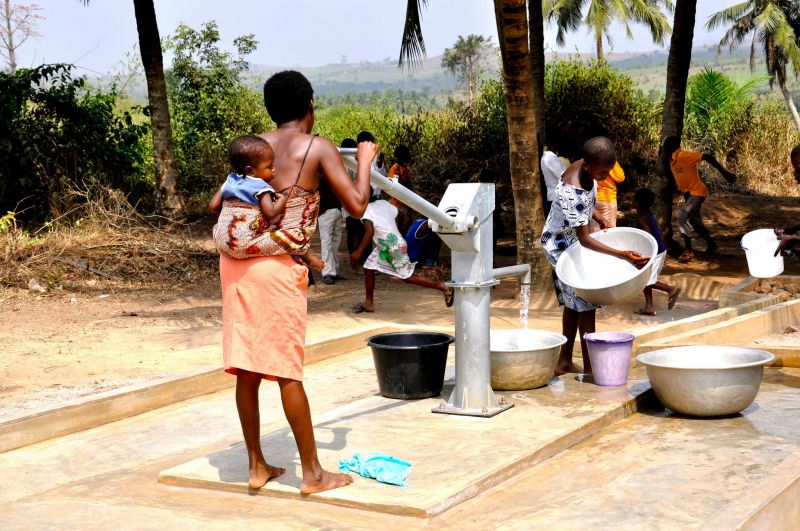Sustainable Hand Pump Business Model
Published on by Water Network Research, Official research team of The Water Network in Technology
In Kwale, Kenya water committee records suggest a typical community spends between $150-200 per year on O&M (all handpumps in Kwale are Afridevs).
About $100-$150 per year is spent on repairs, with most of the remainder covering the pump attendant’s wage. The average household pays $ 7.20 per year (if they pay on a monthly basis), or equivalent to $1.30 per cubic meter if they pay per bucket.

Family using the Afridev pump, source: Wikimedia Commons
Based on self- reported data, the handpumps break down 2-3 times per year. You can see a detailed analyses of revenues and expenditures for water committees in Kwale here: https://goo.gl/Tb6Bxu from Dgoups discussion.
See also:
- https://wedc- knowledge.lboro. ac.uk/resources/ conference/27/ Hankin. pdf
- http:// sustainablewaterpumps . weebly.com/ afridev-pump. html
- http:// sustainablewaterpumps . weebly.com/ afridev-pump. html
In general, most objective studies agree that the VLOM model, for which the Afridev was originally developed, does not give the expected results. Hand pumps break down, and communities that use them do not have the resources to keep them. With
3 to 5 breakdowns per year, with 5 to 7 weeks downtime no water seems that a service model is the only answer. see this site for information on a leasing solution.
https://www. ircwash.org/ sites/default/ files/Beers- 2001-Leasing. pdf
Media
Taxonomy
- Drinking Water Security
- Water Access
- Water Supply
- Access
- Water Supply
- Drinking Water Managment
- Drinking Water
- Pumps
- Pumps Installation